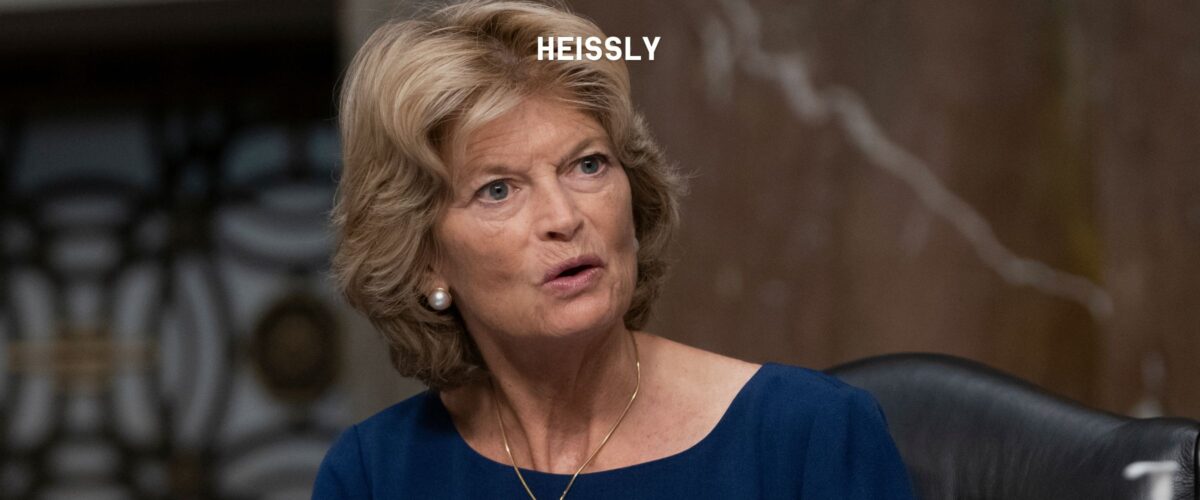Lisa Murkowski Hints at Leaving the GOP — What a Party Switch Could Mean
In a surprising revelation that has already sent ripples through Washington, Republican Senator Lisa Murkowski has suggested that she might switch parties and become a Democrat. Known for her moderate stances and occasional breaks with GOP leadership, Murkowski’s comments are fueling speculation about whether a long-serving senator might realign her political identity — and what that could mean for the Senate and national politics.
1. Murkowski’s Track Record
Lisa Murkowski has long been one of the most independent voices in the Senate. Representing Alaska since 2002, she has often voted against her party on issues such as healthcare, environmental protections, and judicial confirmations. Her history of bucking party orthodoxy has earned her both admiration and criticism — admired by moderates and centrists, criticized by hardline conservatives.
Some of her most notable departures from GOP positions include:
-
Voting against the repeal of the Affordable Care Act in 2017.
-
Opposing certain Trump-backed judicial nominees she deemed unfit.
-
Supporting protections for reproductive rights in select votes.
These positions have made Murkowski a swing vote in key Senate decisions and positioned her as a moderate voice willing to cross party lines.
2. The Implications of a Party Switch
If Murkowski were to officially switch from Republican to Democrat, the consequences could be significant:
A. Senate Balance of Power
The Senate is often decided by razor-thin margins, and even a single senator changing parties can shift control or affect the majority’s ability to pass legislation. Depending on the composition of the chamber at the time of a switch, Democrats could gain a stronger position to advance their legislative priorities.
B. Committee Leadership and Membership
Committee assignments and chairmanships are highly sensitive to party affiliation. A switch would require a realignment of committee seats, potentially giving Democrats greater influence in key policy areas such as judiciary, energy, and finance.
C. Electoral Ramifications in Alaska
Murkowski represents a state that leans Republican, and Alaska voters have a history of independent thinking. Switching parties could impact her re-election prospects or alter voter perceptions of the GOP’s strength in the state. It may also influence Alaska’s broader political dynamics and affect local races.
3. Why Murkowski Might Consider a Switch
Several factors could contribute to her contemplation of changing parties:
-
Ideological Divergence – Increasingly polarized politics may have pushed Murkowski to consider alignment with a party that better matches her policy positions.
-
Legislative Influence – As a Democrat, she might wield greater influence on legislation where the GOP has narrowed its internal consensus.
-
Response to Base Pressure – In recent years, the Republican Party has seen a shift toward hardline positions on issues such as social policy and environmental regulation, possibly making moderation less tenable.
While it’s unclear whether this is a definitive decision or exploratory comment, even the suggestion is enough to capture national attention.
4. Reactions from Both Parties
GOP Response
Republican leaders may view a potential switch as a warning sign about internal party cohesion. It could spark discussions about outreach to moderates or intensify efforts to consolidate hardline positions.
Democratic Response
Democrats are likely to welcome a centrist voice that could enhance bipartisanship or help pass legislation in a closely divided Senate. They may also weigh the political optics of embracing a former Republican in terms of messaging and policy alignment.
5. Historical Context
Party switching is rare but not unprecedented in U.S. politics. Examples include:
-
Senator Arlen Specter of Pennsylvania switching from Republican to Democrat in 2009.
-
Senator Jim Jeffords of Vermont leaving the GOP in 2001, which shifted Senate control.
Such moves often reflect broader trends in political polarization and can have lasting effects on legislative agendas and electoral dynamics.
6. What This Means for Policy
If Murkowski does switch, Democrats could see strategic opportunities in several key policy areas:
-
Healthcare: Her moderate stance could influence votes on insurance, Medicaid, and public health legislation.
-
Environmental Policy: Alaska’s unique ecological concerns could give her leverage in climate and resource management debates.
-
Bipartisan Initiatives: Murkowski’s history as a bridge-builder might encourage compromise on contentious issues, shaping negotiations between parties.
Conversely, a party switch could heighten polarization within the GOP and create new dynamics in electoral strategy, messaging, and fundraising.
7. Public Perception and Media Framing
Media coverage of Murkowski’s comments is likely to oscillate between speculation and analysis. Headlines will focus on the drama of a potential party shift, but thoughtful coverage will explore policy consequences, Senate arithmetic, and historical parallels. Public reaction will depend heavily on how her constituents perceive the move: as principled independence or as political opportunism.
8. Conclusion
Lisa Murkowski’s hint that she might switch parties is a reminder that American politics is dynamic, and even long-serving senators may rethink their affiliations in response to changing ideological, legislative, or electoral pressures. Whether she ultimately becomes a Democrat or remains a Republican, her comments have already ignited debate, highlighting the significance of moderation, independence, and strategic positioning in today’s polarized political environment.
For voters, lawmakers, and political observers, Murkowski’s statements are a prompt to consider not only the personalities involved but also the structural and policy impacts of party alignment in the U.S. Senate.
